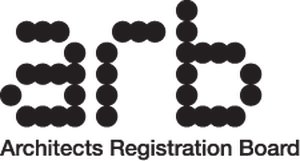The objectives we set for 2013
 The process of developing the business plan is a collaborative and gradual one. The executive team gains input from staff and produces a first draft of the business plan which is presented to the Board at the July Board meeting for comment. At this meeting, the Board provides advice and suggestions for areas of change. Amendments are made during August and the revised business plan is discussed and agreed by the Board, along with the budget, at the September Board meeting.
The process of developing the business plan is a collaborative and gradual one. The executive team gains input from staff and produces a first draft of the business plan which is presented to the Board at the July Board meeting for comment. At this meeting, the Board provides advice and suggestions for areas of change. Amendments are made during August and the revised business plan is discussed and agreed by the Board, along with the budget, at the September Board meeting.
The objectives set out in the 2013 Business Plan are covered below:
Maintain the quality of and access to the Register
Under the Architects Act 1997, ARB maintains the UK Register of architects. The Register identifies those who are entitled to use the title ‘architect’ in business and practice as they have met the requirements for qualifications and competence. The Register is the tool through which potential users of architects’ services can find an architect and check that an architect is registered. It is also important to architects that they are identified as qualified professionals. The Register must therefore be accurate and accessible. The work which underpins the maintenance of the Register is wide-ranging.
Maintain the qualifications of architects
Under the Architects Act 1997, ARB prescribes (or recognises) the qualifications required to become an architect for those who gain their qualifications within the UK. We also contribute to the scrutiny and review of those qualifications which are obtained in other European Economic Areas (EEAs), and which seek to be listed at a European level. We therefore maintain systems for assessing qualifications against set criteria. These criteria are held in common with the Royal Institute of British Architects and the Quality Assurance Agency benchmark for architectural qualifications. The UK criteria also reflect the minimum requirements across the EEA. We work closely with many other organisations and Member States to ensure that our systems are robust, fair and efficient, and that they provide support to Schools of Architecture, whilst ensuring that as a regulatory body, we have confidence that prescribed qualifications meet the Board’s objectives and criteria.
Maintain the standards of conduct and practice of architects
Users and potential users of architects’ services need to have confidence in the standards set by us under the Architects Code of Conduct and Practice, and that we take appropriate action where architects fall below the standards expected. We will seek to raise awareness of the Code and how clients may use it to help them in their relationship with their architect, as well as raising awareness and understanding of the Code by architects themselves. We will investigate allegations of unacceptable professional conduct and serious professional incompetence but will also seek to mitigate the risk of such situations arising.
Raise public awareness of the Register and help users and potential users of architects’ services make informed choices
We recognise that it is not sufficient simply to hold an accurate Register. To be of value, the Register must be accessible, and users and potential users of architects’ services must understand the distinction of the title ‘architect’ and the importance of the Register in confirming an architect’s registered status. We therefore work to increase awareness of the Register, to inform the public about the qualifications and competence of architects and to alert the public to the Architects Code of Conduct and Practice. We also work to prevent the misuse of the title ‘architect’, which may only be used by those on the Register.
Corporate Functions
In addition to the four overarching objectives outlined here, the Board sets a number of objectives in relation to its corporate functions. These functions are of key importance in that they support the organisation’s ability to deliver its remit. The objectives for the corporate functions are listed below:
- Manage risk
- Maintain adequate and appropriately skilled staffing levels that are utilised effectively
- Maintain Government confidence
- Efficient financial management
- Enable the Board to take informed decisions
- Compliance
- IT strategy
- Review the Board Members’ Code of Practice and General Rules concerning Board members
- Communications
- Introduce a secure external portal for all areas of ARB’s work (Two-year project)
- Explore and take up opportunities to work with stakeholders jointly to deliver ARB’s objectives
